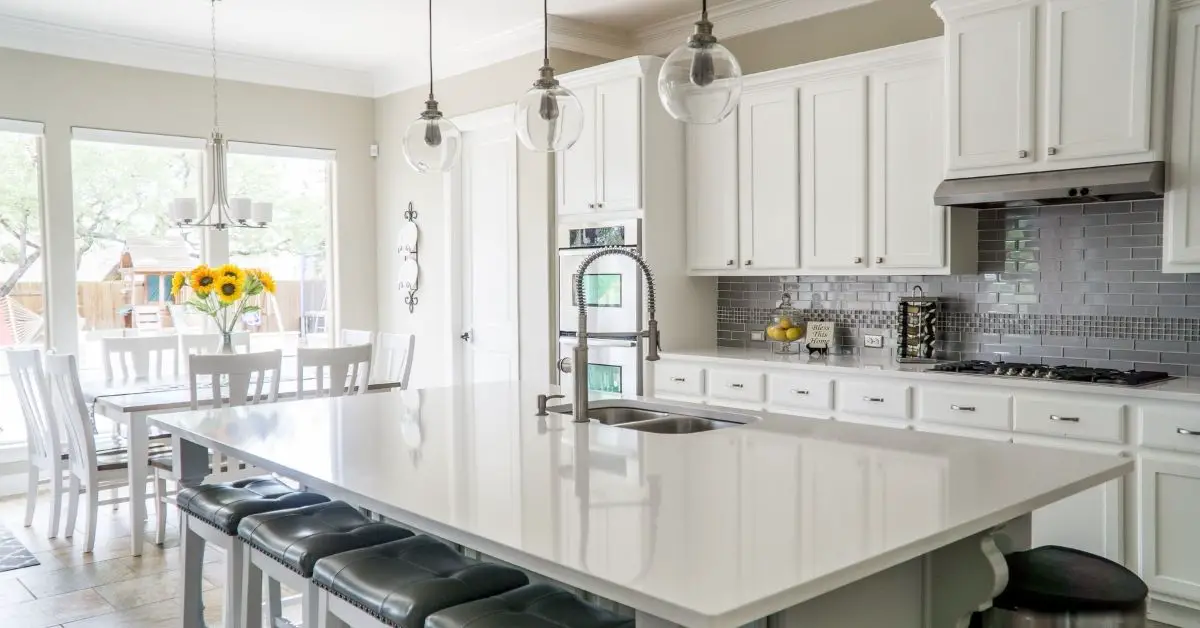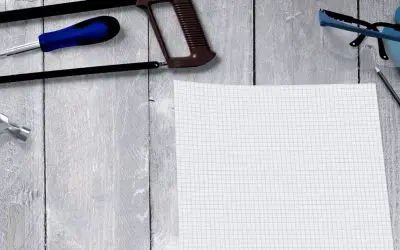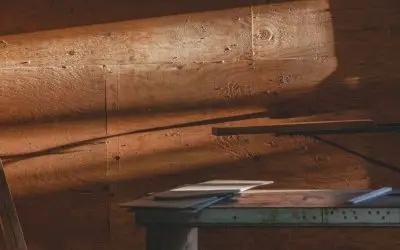Share

This blog post is going to show you how to join straight edge kitchen worktops. There are nine easy steps and we will be discussing the benefits of each step as well as what tools you need for this job. Straight edge kitchen worktops can be a great addition to your home if they are done right!
How to Join Straight Edge Kitchen Worktops in 9 Easy Steps
Step 1: Measure the Worktop
Before you can do anything, you need to measure the worktop. This will help you determine how much material you need and what kind of edge profile you should use. Be precise when measuring to ensure a perfect fit. Try to err on the side of caution and overestimate rather than underestimate.
Step 2: Buy Materials
Once you know how much material you need, it’s time to pick up some supplies from your local hardware store (and maybe grab a snack).
You’ll need worktop adhesive, an edge profile for your chosen surface type, wood filler if needed, and sandpaper or sponge blocks for finishing touches. Make sure that all of these items are included in the kit as well; they will make life easier when laying down the new worktops.
Step 3: Prepare Work Surface
Before installing any kind of kitchen worktops, especially granite ones with straight edges, be sure to clean and prepare them properly.
Any leftover residue can cause problems throughout installation, so give the surface a good scrubbing and make sure it’s dry before moving on. If you’re installing new worktops over an existing surface, you may need to remove the old ones first.
Step 4: Cut Worktop to Size
If your worktops are not pre-cut, it’s time for some DIY action. Measure and mark the desired cut line on the underside of the worktop using a straight edge and sharp blade.
Be especially careful when cutting near the edges so that you don’t damage them. You can use a jigsaw or circular saw to cut, but take care – both tools can easily cause mistakes if used incorrectly.
Step 5: Apply Adhesive
Before applying adhesive, read all instructions carefully and be sure to follow them exactly as written. This is a crucial step in ensuring that your new worktops stick properly.
Use a trowel to spread an even coat of adhesive on the underside of your newly cut edge profile and place it in its final position on top of existing or new kitchen surfaces.
Step 6: Press Down
Now that everything is in place, you need to press down firmly along the entire length of the straight edge until the adhesive begins seeping out from underneath (a surefire sign that things are going well).
Make sure not to move too quickly; slow and steady wins this race! You can use scrap wood pieces as wedges if needed for extra support.
Step 7: Fitting Straight Edge Kitchen Worktops with Wood Fillers
If space between your granite edges is uneven or gaps appear after installation, you can use wood fillers to fix the issue. Simply apply a small amount of filler to the affected areas and let it dry completely before sanding it down flush with the surrounding surface.
Step 8: Sand and Finish
Now that everything is in place, take some time to lightly sand down any rough patches or uneven surfaces using fine-grit sandpaper or sponge blocks. This will help create a smooth, polished finish. Be sure to wipe away any dust created by sanding before applying your chosen finish (varnish, wax, etc).
Step 9: Enjoy!
You’ve done it – your brand new straight-edge kitchen worktops are installed and looking fabulous! Sit back, relax and enjoy your hard work. Well done!
Straight edge kitchen worktops are an excellent choice for many homeowners. They look great and can really improve the overall look of any room they’re installed in!
The process isn’t too difficult, but it may take some time to complete. You’ll gain a sense of accomplishment once your new worktops are finished, so be sure you start this project today!



0 Comments